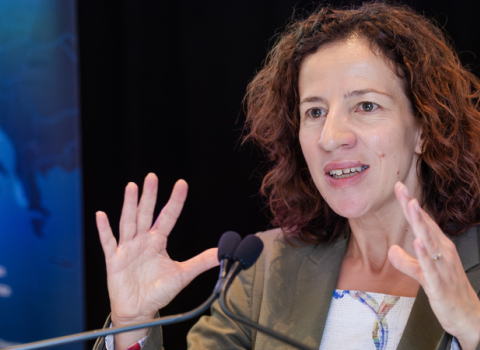European University Association offers 18 recommendations for improving €26.2B EU education fund in half-way evaluation. The biggest administrative improvement would be fixing long-running problems with IT

The European University Association (EUA) has drafted its wish list for improvements to Erasmus+, as a three-month consultation on the EU education programme draws to a close.
In its feedback, the alliance of more than 800 universities and national rectors’ conferences urges the European Commission to simplify the programme and fix IT issues that have been plaguing it.
Michael Gaebel, director at the EUA, says the change that could make the most difference in the administration of the programme is a revamp of its IT system. “It creates a lot of double work, confusion and delays,” he says. “That’s the feedback that we get from the vast majority of the institutions.”
Some of the issues are a mere annoyance, such as a national agency inputting data to the platform one day and the next day not being able to recover it. But for years these hiccups have been costing participants and administrators in member states delays, extra hours, money and frustration.
“Major problems are caused by Erasmus+ digital processes and tools, which are not sufficiently functional, robust and reliable,” EUA’s feedback says. “This results in delays, considerable extra work and costs, and high levels of frustration amongst administrators and programme participants.
This is not a new problem, and there has been no improvement over the years, according to EUA. “Rather, the contrary is true. While technical concerns are at the root of this issue, the lack of prior consultation and the untested and unannounced introduction of some of the tools aggravate it,” the association says.
To ensure future tools are better, universities recommend establishing an expert group of universities and national agencies to tackle the issue and to ensure digital tools are tested before launch. “We really need a smarter approach,” says Gaebel.
The current €26.2 billion seven-year Erasmus+ programme is about to enter its fourth year. It had a rocky start in 2021 after drawn out EU budget negotiations delayed the first calls. With a mid-term evaluation due in the last quarter of 2024, the Commission is now asking stakeholders for feedback on how it's doing.
The programme got a big revamp compared to its Horizon 2020 predecessor, including a significantly bigger budget, digital learning perks and green credentials. It funds cross-border cooperation projects between universities, schools, teacher training colleges and adult learning centres, with most of the money going to student mobility.
The results of the mid-term evaluation will be important to the future of the programme because they will feed into the making of the next seven-year Erasmus+ fund. But Gaebel says it’s too early to say what the results and the main priorities for changes will be for the next programme.
“In some areas, the feedback was that there has been improvement. In others, there hasn’t been,” says Gaebel. “Overall, people are happy with the goals and actions, but clearly there’s still room for improvement in terms of simplification.”
At this stage, universities hope for a bigger budget and enhanced cooperation with third-country institutions. International mobility and cooperation were first introduced to the programme in 2015 and have since brought many improvements, but there’s room for better integration and links to the EU’s higher education and research policy aspirations, universities say.





 A unique international forum for public research organisations and companies to connect their external engagement with strategic interests around their R&D system.
A unique international forum for public research organisations and companies to connect their external engagement with strategic interests around their R&D system.